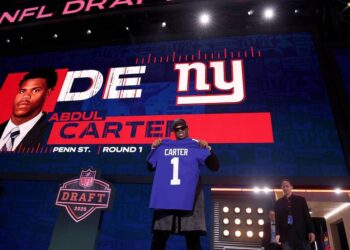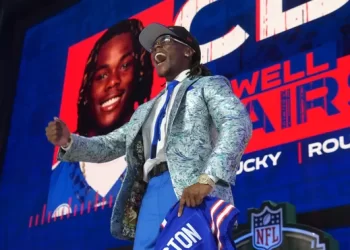By: Zachary Draves
As the Super Bowl approaches, it is impossible to not reflect on one of the most captivating performances in the history of the international spectacle and it has nothing to do with football.
It was 1991 and Super Bowl XXV was held at Tampa Stadium in Florida between the New York Giants and the Buffalo Bills.
But what many took away from that game was not the back and forth battle or Buffalo’s Scott Norwood’s missed field goal that resulted in the Giants win, but it was Whitney Houston’s rendition of the National Anthem prior to the game.
In honor of the 10th anniversary of her passing that just happens to coincide with Super Bowl weekend, what better time than to look back, reflect, and fill our hearts.
Her rendition of the anthem was significant for a number of reasons.
First, the game took place ten days after the US entered the Gulf War and many were consumed by feelings of hope, fear, and uncertainty about what would happen.
Whitney tapped into those feelings, took the National Anthem, and made it her own.
(Courtesy: Tampa Bay Times)
She also reconnected with her roots growing up in Newark, NJ, and raised in the tradition of gospel music given that her mother was gospel legend Cissy Houston, her cousin was Dionne Warwick, and her godmother was Aretha Franklin.
Whitney was also four years old during the 1967 Newark Riots which stemmed from two white police officers beating a black motorist for a minor traffic offense at the height of the black freedom movement.
And certainly, when looking at the history of the Star-Spangled Banner it is riddled with racism.
Frances Scott Key, who wrote the song during the War of 1812, wrote the lyrics that spoke about war and state violence during the time of slavery.
Over the years, the anthem became ambiguous to many Black Americans.
On the one hand, the song speaks of the land of the free and the home of the brave, but yet used the power of the state to weaponize racist practices.
When Whitney took to the microphone before the world at Tampa Stadium in that now-iconic white tracksuit, she sang in a style that was authentically black and essentially compelled mainstream White America to hear the anthem in a way that was unfamiliar to them.

(Courtesy: Youtube)
It is also worth mentioning that she took inspiration from Marvin Gaye’s equally iconic and soulful rendition during the 1983 NBA All-Star Game in Los Angeles that set the precedent.
All these years later, people are still talking about Whitney’s rendition, and in an era where we are now able to put history in a much broader context, there is more than one takeaway from that emotional, electrifying, and endearing production.
It offered hope, comfort, and solidarity as well as longing for the freedom the anthem espouses.
Just listen to Whitney’s use of the word “free”.
31 years after the Super Bowl and 10 years after her untimely death, Whitney Houston remains in our hearts forever and her national anthem creates space for us to remember the good about her and not the tabloid fodder that we were used to reading.
She set the precedent for others to follow but if we are going to be honest, nobody, no matter how good they are, will ever top Whitney.
She was the queen, she was the mover and shaker, and she was and still is The Voice.
RIP Whitney.


 NFL
NFL






